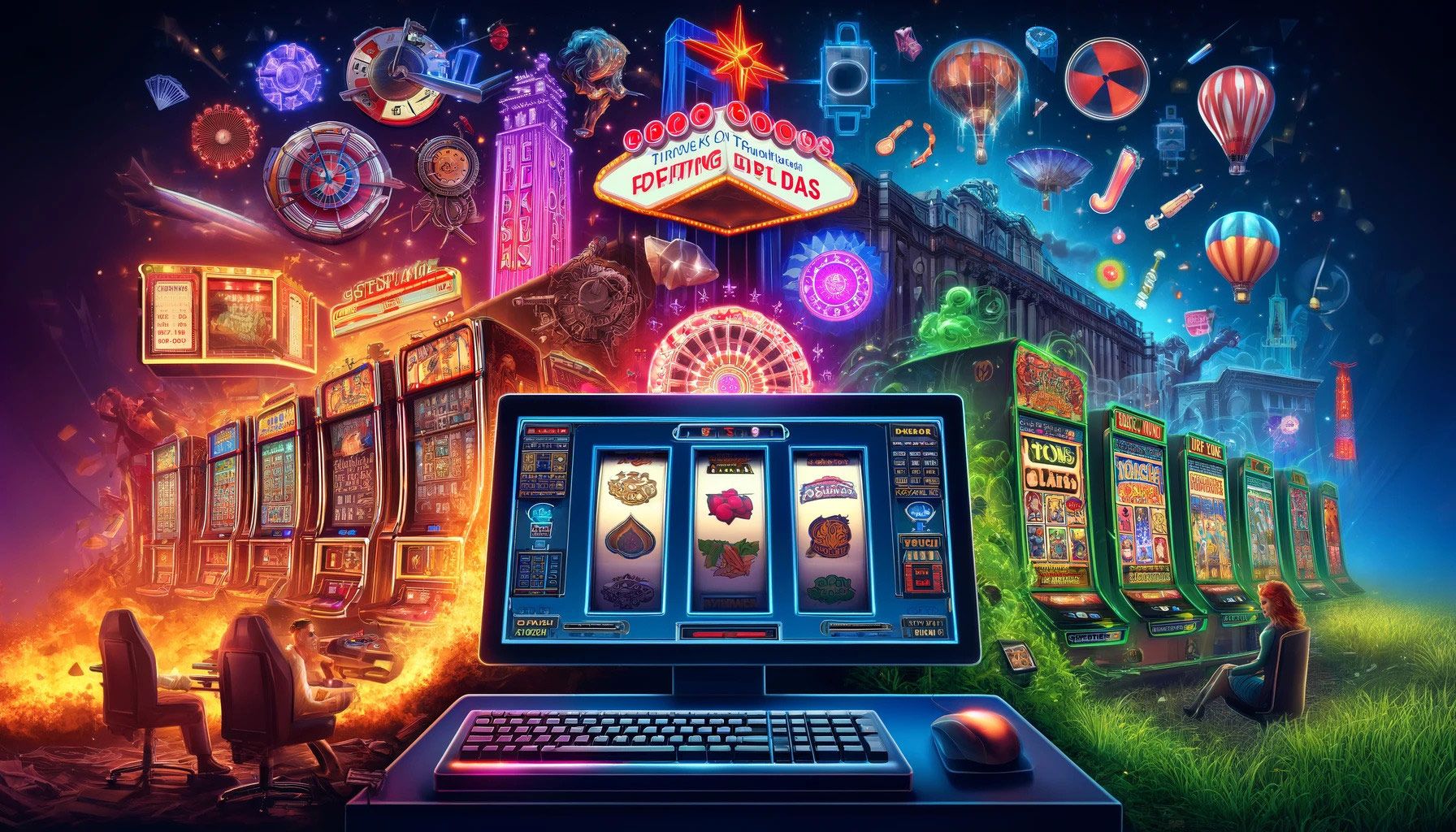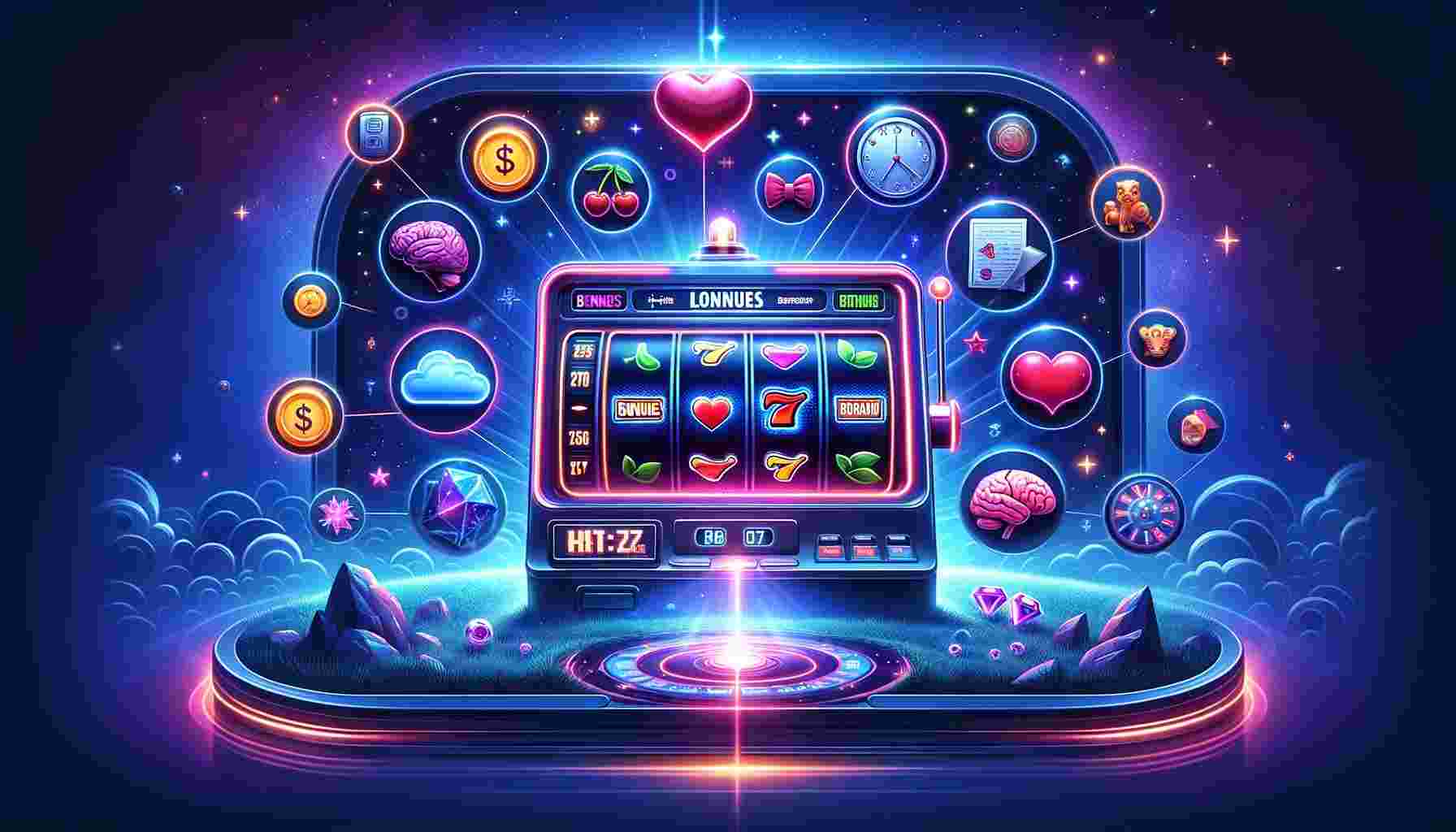Slot servers have experienced significant advancements since their inception, evolving from basic systems that managed simple slot games to sophisticated platforms that support complex, multi-faceted online gaming environments. Initially, slot servers were designed to handle rudimentary tasks, such as processing game outcomes and managing player data. However, as the digital gaming industry expanded and player expectations grew, these servers evolved to accommodate more dynamic and immersive gaming experiences.

Modern slot servers are the backbone of online casinos, responsible for handling everything from real-time gameplay to the integration of advanced security protocols. They ensure seamless operation, enabling players to access a wide variety of slot games with minimal latency, regardless of the device they are using. These servers also support high levels of customization, allowing operators to offer personalized gaming experiences tailored to individual player preferences.
As we look to the future, slot servers are set to become even more integral to the digital gaming ecosystem. Innovations in cloud computing, artificial intelligence (AI), and blockchain technology are poised to transform the capabilities of slot servers, driving the next wave of advancements in online gaming.
The Impact of Cloud Computing on Slot Servers
Cloud computing has already begun to revolutionize the way slot servers operate, offering enhanced scalability, flexibility, and cost-efficiency. With cloud-based slot servers, gaming operators can host their platforms on remote servers, allowing players to access games from anywhere in the world without the need for extensive on-site infrastructure.
One of the key benefits of cloud computing is its ability to scale resources dynamically. This means that during peak gaming hours, servers can automatically allocate more resources to ensure smooth gameplay, and then scale back during off-peak times to reduce costs. This flexibility is crucial for handling the fluctuating demands of online gaming, where player traffic can vary significantly.
Moreover, cloud computing allows for faster deployment of updates and new features. Operators can roll out patches, new games, or system upgrades across their entire platform with minimal downtime, ensuring that players always have access to the latest and most secure gaming experiences.
Looking forward, the integration of AI and machine learning with cloud-based slot servers will enable even more sophisticated gaming environments. These technologies can analyze player behavior in real-time, offering personalized game recommendations, optimizing game performance, and enhancing security measures—all powered by the cloud.
The Role of AI and Machine Learning in Enhancing Slot Servers
Artificial intelligence (AI) and machine learning are set to play a pivotal role in the future of slot servers, enabling more intelligent and responsive gaming platforms. AI algorithms can analyze vast amounts of data generated by players, identifying patterns and preferences that can be used to create more engaging and personalized experiences.
For instance, AI can tailor game recommendations based on a player’s history, suggesting new slots that align with their interests. It can also dynamically adjust game difficulty or offer personalized bonuses to keep players engaged. This level of personalization can significantly enhance player satisfaction and retention, making slot servers more valuable to operators.

Machine learning also plays a crucial role in security. By continuously monitoring player activity, AI-powered slot servers can detect suspicious behavior, such as fraud or cheating, and take immediate action to mitigate risks. This proactive approach to security helps protect both players and gaming operators, ensuring a fair and safe gaming environment.
As AI and machine learning technologies continue to advance, especially integration with slot server thailand will lead to more adaptive and secure gaming experiences. These advancements will allow operators to offer highly customized and engaging games while maintaining the integrity of their platforms.
Blockchain Technology and Its Potential in Slot Servers
Blockchain technology, with its decentralized and transparent nature, offers exciting possibilities for the future of slot servers. Blockchain can provide a secure and tamper-proof record of all transactions and game outcomes, which is crucial in ensuring fairness and building trust among players.
One of the most promising applications of blockchain in slot servers is the use of smart contracts. Smart contracts are self-executing contracts with the terms of the agreement directly written into code. In the context of slot gaming, smart contracts can automate payouts, bonuses, and other in-game transactions without the need for intermediaries. This not only streamlines operations but also ensures that all transactions are transparent and verifiable.
Moreover, blockchain-based slot servers can support decentralized gaming platforms. Instead of relying on a single central server, these platforms can operate on a network of distributed nodes, reducing the risk of downtime and making the system more resilient against cyber-attacks. This decentralization also gives players more control over their gaming experience, as they can verify game fairness and security independently.
While blockchain technology is still in the early stages of adoption in the gaming industry, its potential to enhance transparency, security, and efficiency in slot servers is significant. As the technology matures, we can expect to see more gaming operators exploring its applications, particularly in creating more secure and trustworthy gaming environments.
Real-Time Data Processing and Its Impact on Gameplay
Real-time data processing is becoming increasingly important in the digital gaming world, particularly in the context of slot servers. By processing data in real-time, slot servers can offer more interactive and dynamic gaming experiences, where players’ actions immediately influence the game.
For example, real-time data can be used to update leaderboards, track player progress, and trigger in-game events. This immediacy adds a layer of excitement to the gaming experience, as players can see the direct impact of their decisions and achievements. Real-time analytics also allow operators to respond quickly to player behavior, adjusting game mechanics, offering targeted bonuses, or introducing new features to keep players engaged.

Furthermore, real-time data processing enhances the social aspect of online gaming. Slot servers can facilitate real-time interactions between players, such as in multiplayer slot tournaments or social casino games. These interactions can include live chats, real-time leaderboards, and shared bonus rounds, creating a more engaging and community-driven gaming experience.
As technology continues to evolve, the ability of slot servers to process and act on real-time data will become increasingly important. This capability will enable more responsive and interactive games, improving player engagement and satisfaction.
